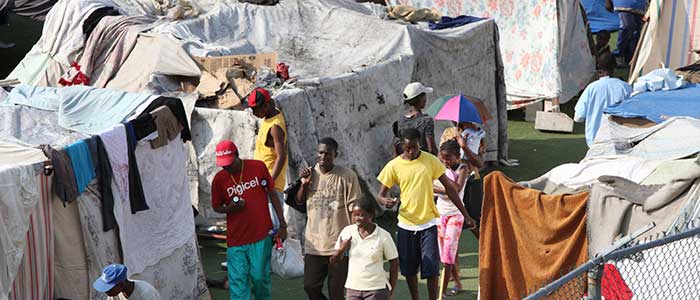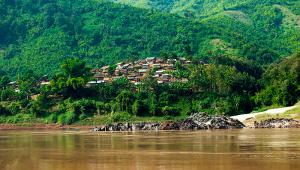Haiti earthquake camp.jpg

Despite billions in aid being funneled to Haiti in the six years following the catastrophic earthquake in 2010, many Haitians still live in crowded camps with little makeshift tents for housing and no sanitation. Cholera, originally brought to the country by UN peacekeepers, continues to thrive.
Before the major quake, no cases of the infection had been recorded in Haiti for a century.
A number of studies have found that the UN’s Nepalese peacekeepers, relocated to Haiti in the aftermath of the 7.0 magnitude quake, were the source of the outbreak. But despite wide agreement among the international community, the UN has until now repeatedly denied the claims.
But a statement from Farhan Haq, a spokesperson for UN secretary general Ban Ki-Moon, initially reported by the New York Times, suggests the organisation is ready to accept its involvement.
Haq reportedly said “over the past year, the UN has become convinced that it needs to do much more regarding its own involvement in the initial outbreak and the suffering of those affected by cholera”.
The newspaper said the shift was prompted by an internal report, seen by the New York Times and penned by Philip Alson, a professor currently serving as the UN’s special rapporteur on extreme poverty and human rights, that concluded the epidemic “would not have broken out but for the actions of the UN”.
While coming in stark contrast to six years of staunch denial at the highest levels, Haq stressed that the UN’s legal position on possible compensation for the victims’ families has not changed.
The organisation takes the view that it is protected for claims for compensation by diplomatic immunity.
Six years on, the bacteria is far from eradicated in Haiti. Despite billions in aid funds being channelled to the country following the earthquake, Haiti still suffers from a severe paucity of water and sanitation infrastructure.
The first victims of the outbreak lived near the base housing the Nepalese peacekeepers, where cholera had already broken out. Sewage from the base leaked into a nearby river and the bacteria, which spreads through infected faeces, was passed to the Haitian population.
Numerous studies have argued that the peacekeepers were the only plausible source of the epidemic.
Since 2010, at least 10,000 people have died and many thousands more have fallen ill from the infection, which causes severe dehydration and muscle cramps as a result of vomiting and diarrhoea.













